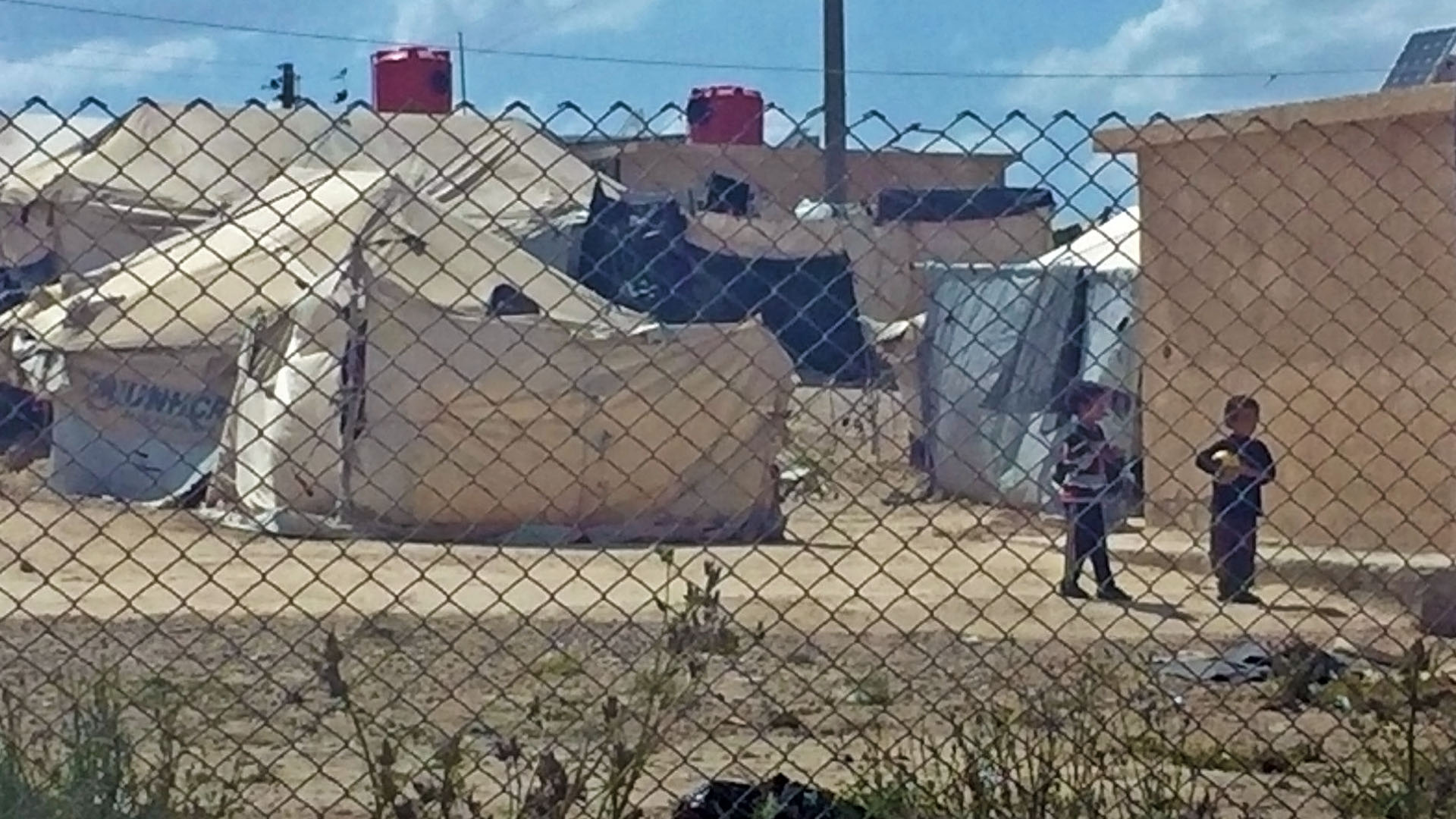Syria is now the questionable home to mothers and children who are either forgotten, ignored or condemned.
“There’s only one exit,” our guide tells us at the place where we’re staying. “If you need to evacuate, don’t turn left outside. That part of the street belongs to Assad.”
We landed in Qatar less than 24 hours before and were warned not to eat in public or carry water bottles, despite the air’s parching dryness. The entire land is in the grip of Ramadan, one of Islam’s most important religious observances.
Looking down at the bustling, dusty road, it’s hard to imagine pieces of this city belonging to a subset of al-Qaeda, one of the world’s most dangerous terrorist groups
A Dangerous Road
We have to leave early in the morning, as soon as the guarded borders around the city open. A three-hour drive stands between us and our ultimate destination, and we must return before the border closes in the evening or else we won’t be allowed back inside.
Almost all of the small street-side vendors have metal doors closed over the front of their shops. With everyone fasting, the food businesses have no reason to open until sunset when hungry crowds will gather like fireflies in the evening gloom to finally eat.
Farther outside of town, the streets are peppered with massive potholes. These would be from rain in other parts of the world, but here they are from IEDs.
In some places, the road is so riddled with undiscovered and undetonated bombs that our driver simply swerves off onto a side-trail and avoids the main thoroughfare altogether.
Some countryside buildings are little more than heaps of rubble, and the ordinary people are picking up their lives as best they can from the wreckage.
Finally, the cars pull up to the camp of ISIS families.
In the Depths of the Camp
A sea of white tents spreads out in front of us. The camp was originally built to temporarily hold about 20,000 political prisoners or other dissidents.
The current inhabitants number closer to 73,000.
We have to go through several police checks in order to enter. Children dart between the tents, pointing at the police dog with us. Women watch, wrapped from head to toe in black hijabs.
No one inside is allowed out, and they are very careful about who is allowed in.
These are the wives and children of ISIS fighters, many who have died and others who are in hiding. “Between 30 and 50 different nations are represented among these women,” we’re told. The uncertainty about these numbers may be partially due to ISIS destroying their passports, but most have also been stripped of their citizenship by their countries of origin.
They are despised by the Syrians and Iranians whose land has been ravaged by ISIS. Citizens remember all too well a few years ago when the Mediterranean was becoming the unmarked grave of thousands fleeing terrorist violence.
Despite being brainwashed and traumatized themselves, these women are very present reminder to locals of ISIS’s terrible work.
Those Who Need Love
At a nearby building, a small cluster of women have been gathered from the camp to help us. Most don’t speak any English, but they’re curious about what we’re doing.
The team has about a thousand packets of resources they’re delivering to the camp directors. My part is to help fill the pink bags with soap, towelettes, clean underwear and other feminine products; but all I can think of is how small a thousand packets seems in the face of thousands of women in desperate need of these small essentials.
The other women help us pack these bags full of supplies that the Syrian camp director is simply too busy to provide; the logistics of running a refugee camp this size are overwhelming.
Some of the woman give me hugs afterward, their faces lit up.
Then we have to load back into the vehicles and rush back before the borders close again. What lingers in my mind, though, are the faces of the children playing in the dirt and the women waiting for anyone to rescue them or care.
Many had no idea what they were being brought into. Even more are desperately afraid for their children. All need to hear about a God who loves them, who shook heaven and earth grant us salvation.
